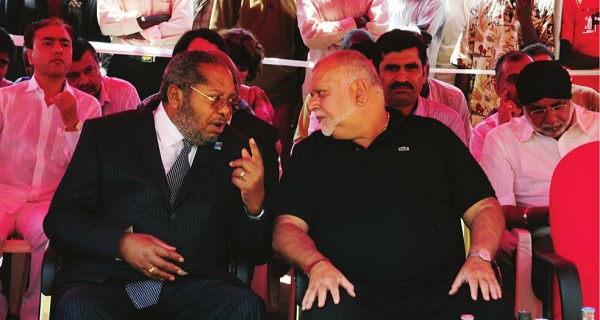
There were ripples in the financial services sector recently when reports emerged that Crane Bank is in negotiations with a buyer. This is the second biggest indigenous bank and the country’s fourth largest bank by assets.
‘It’s owner and founder, Sudhir Ruparelia, is arguably the region’s richest man. Why would the family want to sell their treasured flagship investment?
In a statement signed by Board Chairman Joseph Biribonwa, the bank appeared to appease the panic by confirming that they are seeking a “strategic equity investor preferably with a regional and even better continental network.”
“This strategy is in sync with the inevitable trend of mergers and acquisitions, not just as an important forum of growth for the purposes of the East African integration but as a strategic move at a global level too,” the statement added. “The strategic equity investor approach is aimed at strengthening the bank’s balance sheet further.”
In 2015, a year when most banks got a painful pinch of non-performing loans and assets, Crane Bank was among the worst hit. In an interview with a local tabloid early this week Sudhir admitted to sourcing for the strategic investor which he declined to disclose.
Industry sources say Sudhir`s decision to source for an investor is a reaction to a depressed economy, which has eroded the bank’s profitability and non-performing loans that have depleted its reserves.
The bank saw its profits shrink from Shs 50 billion in 2014 to a loss of more than Shs 3 billion in 2015. Despite its strong performance that saw assets grow from Shs 1.71 trillion to Shs 1.79 trillion during the year, a seven fold increase in non-performing loans put that to a halt.
Crane Bank’s nonperforming portfolio ballooned from just over Shs 19.3 billion in 2014 to set an industry record of Shs 142.3 billion in 2015. This came against a 1.2% increase in NPL’s for the industry between December2014 and December 2015.
Industry observers say the bank’s underperformance in 2015 is a true reflection of what is going on across the entire business operations in the country.
With the cost of locally-generated financing well above 10%, a shrewd investor must look over the borders to partner with a stronger player that can source business capital at interest rates as low as 5%. How successful the transaction will go is what remains to be seen. However, given that Crane Bank is classified as one of the three Domestic Systemically Important Banks (D-SIBs) by Bank of Uganda – along with Stanbic Bank and Standard Chartered Bank – the Central bank will be meticulous in its handling of the approval process for the transaction.
Will it be a merger or an acquisition by the “strategic investor”? Will there be a change of name or the name ‘Crane Bank,’ which is obviously a very strong brand, will be maintained? All those questions will be answered in the next few months.
****
editor@independent.co.ug
 The Independent Uganda: You get the Truth we Pay the Price
The Independent Uganda: You get the Truth we Pay the Price





